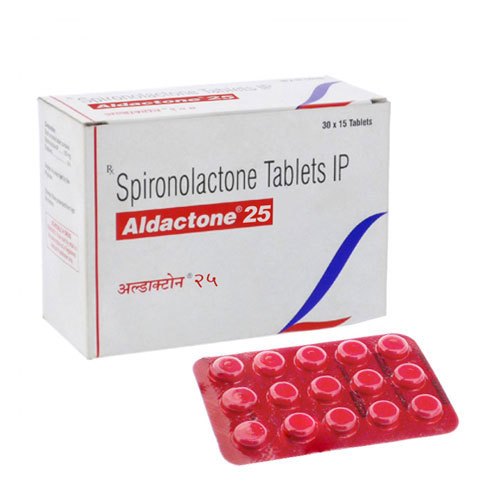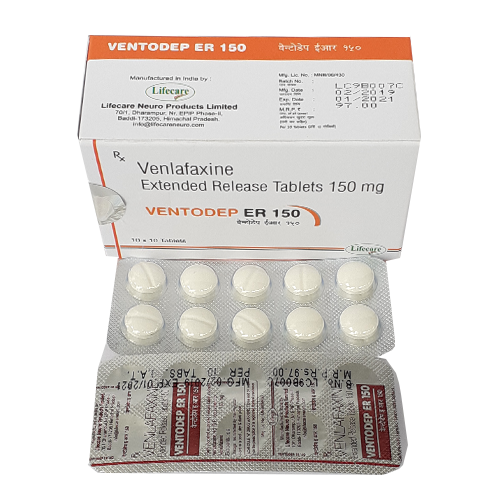Understanding Aldactone: A Comprehensive Guide to Uses, Mechanism of Action, Dosage, and Considerations
Introduction
Aldactone, also known by its generic name, spironolactone, is a potassium-sparing diuretic. It is generally used to treat disorders that cause fluid retention in the body, including congestive heart failure, liver cirrhosis, and nephrotic syndrome. Furthermore, lactone is often used to treat high blood pressure (hypertension) and to counteract the effects of excess aldosterone, a hormone that can cause fluid retention and potassium loss.
Action Mechanism:
Aldactone functions by inhibiting the actions of aldosterone, an adrenal gland-produced hormone. The overproduction of aldosterone can result in fluid retention and elevated blood pressure. Aldosterone is an essential hormone that controls the body's salt and water balance. Inhibiting aldosterone's ability to connect to its receptors, spironolactone keeps potassium in the kidneys while blocking the reabsorption of salt and water. As a result, there is less fluid buildup and more urine output.
Applications in Medicine:
Heart Failure: As an adjuvant treatment for congestive heart failure, aldactone is frequently recommended. It helps reduce symptoms like edema and dyspnea by decreasing fluid retention.
Hypertension: Whether used alone or in conjunction with additional antihypertensive drugs, spironolactone is a useful treatment for excessive blood pressure. Its diuretic action reduces fluid volume, which lowers blood pressure.
Liver Cirrhosis: Ascites, or fluid buildup, is a typical consequence in people with liver cirrhosis. It is possible to administer Aldactone to treat this fluid retention and alleviate your discomfort in general.
Nephrotic Syndrome: This illness causes significant protein loss in the urine, which causes swelling, or edema. Nephrotic syndrome patients may utilize Aldactone to control their fluid retention.
Polycystic Ovary Syndrome (PCOS): Because of its anti-androgenic properties, spironolactone is occasionally administered off-label to treat PCOS symptoms in women, including hirsutism (excessive hair growth) and acne.
Administration & Dosage:
The ailment being treated determines the appropriate dosage of aldactone. Usually, it is given orally, either with or without meals. for treating hypertension, the starting dosage is frequently less than for treating heart failure or cirrhosis. Throughout therapy, it is crucial to regularly check kidney function, blood pressure, and electrolyte levels.
Adverse Reactions:
Similar to many medications, aldosterone has the potential to cause negative effects. Changes in electrolyte levels, headaches, nausea, and dizziness are common adverse effects. Notably, spironolactone has the potential to result in hyperkalemia, or elevated potassium levels in the blood, which can have detrimental effects. It is essential to monitor potassium levels, particularly in patients with renal disease or those on other drugs that may impact potassium.
Precautions and Exclusions:
Not everyone may benefit from aldactone. It should not be administered to those who have Addison's disease, hyperkalemia, or severe renal insufficiency. When taking Aldactone with other diuretics that spare potassium or drugs that raise potassium levels, caution is suggested.
Interactions between drugs:
Aldactone and other drugs may interact, decreasing the drug's effectiveness or raising the possibility of negative consequences. ACE inhibitors, angiotensin II receptor blockers (ARBs), and nonsteroidal anti-inflammatory medications (NSAIDs) are a few examples of them. Notifying medical professionals about any prescription drugs, dietary supplements, and herbal remedies taken is crucial.
Being pregnant and nursing:
Since Aldactone may feminize male fetuses, it is generally not advised to take it during pregnancy, particularly in the first trimester. When nursing, heed caution as it is secreted in breast milk.
In summary:
Aldactone, also known as spironolactone, is a multipurpose drug that is used to treat some illnesses linked to high blood pressure and fluid retention. Heart failure, hypertension, and other associated illnesses can be effectively managed using its capacity to specifically inhibit aldosterone receptors. To guarantee its efficacy and reduce the possibility of adverse effects, however, close observation and adherence to dose recommendations are essential. Like with any drug, people should speak with their healthcare practitioner for information and recommendations unique to their requirements and medical history.


Comments
Post a Comment